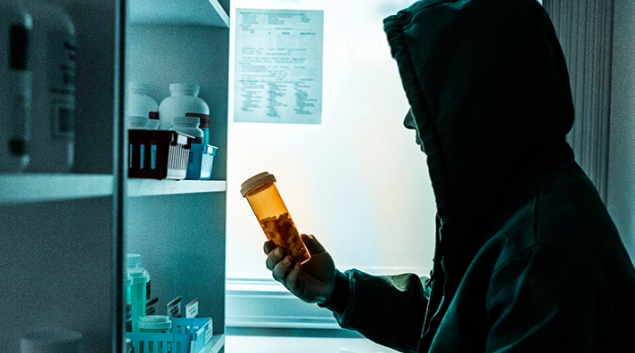Healthcare in the Netherlands faces rising medicine theft, with over 50% linked to opiates. Hospitals report dismissals amid shortages, addiction concerns, and evolving staff challenges.
Today, Friday, December 13, 2024, the NTR news in the Netherlands announced that more than 50% of employees in healthcare institutions regularly steal narcotic drugs from the medicine cabinets of the institutions where they work. The theft of medicines (opiates) in the Netherlands is punishable by immediate dismissal
Due to more recent studies in this area, many hospitals have conducted further research on their own opiate stockpiles. Despite the many safety measures already taken, and although the threshold for this abuse has been raised, many issues remain. In particular, sleeping pills and heavy painkillers are too often the target of theft. The Health Care Inspectorate has now calculated for the first time that from 2021 to 2023, this issue resulted in nearly 100 instances of instant dismissal.Naturally, the question arises: why? Why do doctors and nurses turn to these drugs? Recent research indicates that in a small number of cases, the issue was due to stock lists not being properly completed. However, it was also noted that some employees later admitted they had indeed abused the situation.
Picture:: Healthcare Finance News
If we consider the thefts in absolute numbers, the largest number of immediate dismissals occurred in hospitals (47), nursing home care (47), primary care (7), and care for the disabled and mental health care (2 each). Altogether, there were 95 immediate dismissals due to these thefts. When this number is viewed in the context of total healthcare employees, it means one person is fired approximately every two weeks, according to Janet Helder, Chief Inspector of the IGJ. Janet emphasizes that, given the severe shortage of healthcare workers, these dismissals are particularly difficult to manage. She also believes the problem is likely more extensive than what is currently known.Ron Nieuwendijk, from the research agency Hoffman, agrees that the abuse is likely underreported. He notes that there are numerous cases where the perpetrator has not been identified, meaning these instances are not reported to the IGJ. Janet Helder also suspects these thefts may be linked to addiction issues among healthcare workers. Marlies de Rond of the KNMG medical federation highlights that addiction is a severe brain disease that is treatable.
Finally, Ron Nieuwendijk mentioned that he has also encountered situations where severely demented patients no longer receive their medication because it simply disappears. Eva de Bres-Riemslag, manager of care and operations at Northwest Hospital in Alkmaar, shared that they have reduced the rate of abuse from over 50% to 30% through innovative strategies, though this is still a significant problem.Houke Klomp, a member of the Board of Directors of Northwest Hospital, shared her perspective, stating that while she was aware of the high rates of medication abuse, the sheer scale remains shocking. She suggests that the issue may arise from the changing rhythms of life among healthcare workers, who often face the challenges of flexible shifts.




